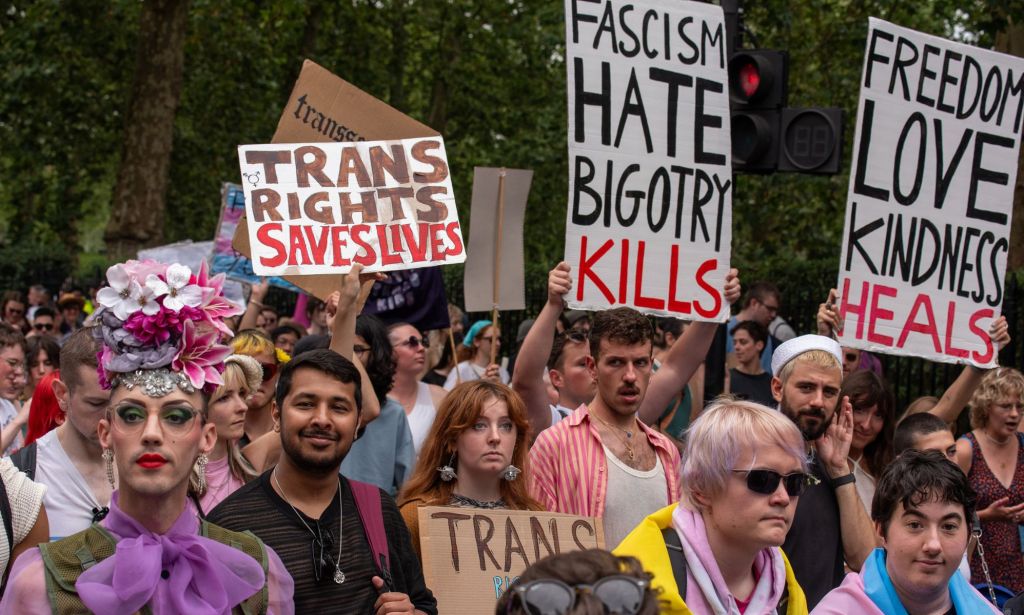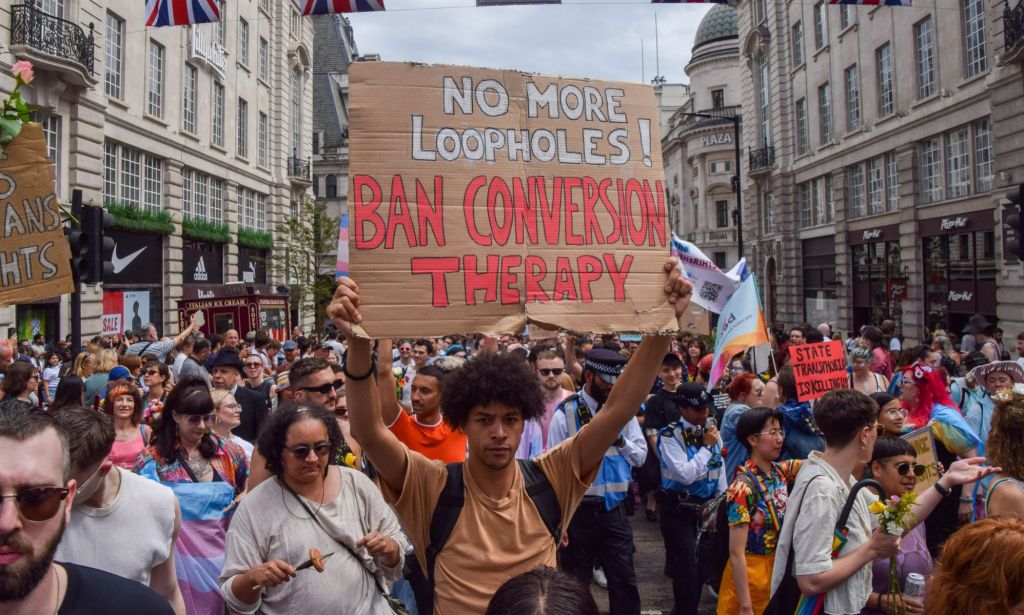The next Stonewall chief has a huge task on their hands

Nancy Kelley led Stonewall through attacks from gender-critical voices and the media, and the next leader of the LGBTQ+ charity must remain strong in the face of such hate. (Getty)
After Nancy Kelley’s resignation, the next CEO of Stonewall will face the tough the task of steering the charity through increasing hostile waters, with LGBTQ+ rights, and those who fight for them, under attack.
After three years of leading Europe’s biggest LGBTQ+ charity, Kelley announced Monday (10 July) that she’s leaving Stonewall at the end of July. She did not give a reason.
Kelley said she is “so proud” of Stonewall’s achievements, but admitted it hasn’t always been a “pleasure”.
She noted that the charity has been subjected to “unprecedented attacks in the press, sometimes supported by government representatives” but, despite this, it has “surely been a privilege”.
It’s been a difficult few years for Stonewall, which advocates for the rights of LGBTQ+ people in the UK, but has been labelled “controversial” and even “extremist” for its trans-inclusive stance.
Several high-profile organisations, including the BBC, the Cabinet Office, University College London and broadcasting regulator Ofcom, have quit Stonewall’s workplace inclusion scheme, Diversity Champions, amid such rhetoric.
In 2021, the charity was forced to defend itself from what it called a “co-ordinated attack” across the British media. It came after the BBC and other outlets reported that Stonewall had given “potentially illegal” advice about workplace transgender discrimination protections under the 2010 Equality Act.
The charity rebutted the suggestion, noting that the legality of its advice had been upheld in a High Court hearing.
Stonewall found itself in the courts again in 2022, when it was sued by LGB Alliance co-founder Allison Bailey. She alleged it “instructed, caused or induced” her ex-employer, Garden Court Chambers, to discriminate against her. She lost her action against the charity, but won her case against the legal chambers.

The UK is hostile to trans lives
Trans people make up less than one per cent of people living in England and Wales, according to census data. But the rights and lives of trans people are constantly in the spotlight, whether it’s attacks in the media or bigoted remarks from politicians.
In addition, queer and trans people have seen hate crimes rise steadily in recent years. They’ve faced death threats, abuse and, recently, hateful mobs protesting drag performances.
And that’s just part of the volatile landscape that the next leader of Stonewall must navigate in order to improve the material conditions of LGBTQ+ people living in the UK.
The current UK government has stagnated on bringing forward meaningful change for the queer community and has begun engaging in firmly anti-trans talking points. It has resulted in the country rapidly falling down the annual ranking of LGBTQ+ rights, highlighted by International Lesbian, Gay, Bisexual, Trans and Intersex Association Europe.
It has blocked legislation that aims to make it easier for trans people in Scotland to change their legally recognised gender, and is reported to be planning restrictive new guidance that would force schools to out trans students to their parents.
The next Stonewall leader will need to call out all of this. They’ll also need to campaign for a ban on conversion therapy that protects all LGBTQ+ people, with reports that a forthcoming draft bill will be riddled with loopholes.

But that’s not all.
They’ll need to continue to criticise the government’s continued failure to recognise non-binary people on legal documents, including birth certificates and passports, and push back against the anti-trans and anti-LGBTQ+ rhetoric perpetuated by hateful voices.
Being the public face of Stonewall will mean opening themselves up to being lambasted by powerful critics. But having another leader who will stand up for the community bravely and compassionately, like Nancy Kelley has done, is needed now more than ever.

